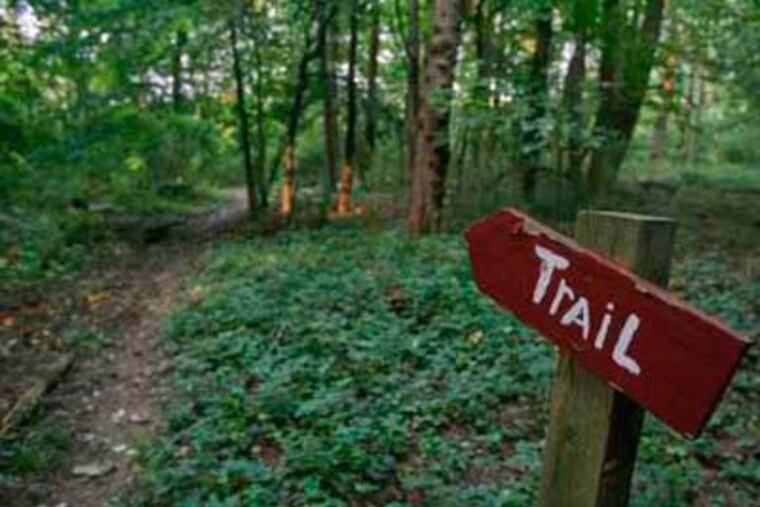N.J. Pinelands Commission offering free webinars on pine barrens unique plants, history, climate
Beginning in early June, the New Jersey Pinelands Commission will host free Pinelands-themed webinars as part of the Pinelands Speaker Series.

Curious about what grows in the New Jersey Pinelands, what makes its ecosystem unique, or its colonial history?
Next week, the New Jersey Pinelands Commission will launch a free weekly series on YouTube about the ecosystem’s plants, wildflowers, soil, fungi, climate, and history.
“Based on the popularity of our past educational programs, we know how much the public loves the Pinelands and wants to learn more about the region’s resources,” Nancy Wittenberg, the commission’s executive director, said in a news release. “We’re proud to offer an outstanding lineup of presentations that will bring the Pinelands into people’s homes.”
The webinars will be livestreamed every Thursday at 10 a.m. on the commission’s YouTube channel, with the first of nine installments starting on June 4. The videos will be archived for future viewing.
The commission is an independent state agency focused on protecting the one-million-acre Pinelands National Reserve.
Here’s the lineup:
June 4: Becky Laboy, education outreach specialist with the Ocean County Soil Conservation District, on an exploration of plants and wildflowers of barrens and bogs. The soil — sandy, dry, and nutrient poor — poses challenges to the growth and survival of plants, yet an array of uniquely beautiful native flowers, shrubs, and trees manages to thrive anyway.
June 11: Dave Robinson, New Jersey state climatologist, will focus on the weather and climate of the Pinelands. He will discuss how global climate change affects New Jersey, answering questions as to where we have been and where we may be headed.
June 18: Jen Bulava, Burlington County park naturalist, on nonnative plants and fungi that wreak havoc on the environment. Bulava will explain how species got into the Pinelands, why they are so destructive, and the need to encourage growth of native plants. She’ll also show how to identify the 20 most common invasive plants found in South Jersey.
June 25: Paul Leakan, the commission’s communications officer, will dig into the “dirt-filled” details of building and maintaining a bog garden with native Pinelands plants. The commission converted a raised bed of random, nonnative plantings into an expansive bog garden of 100% native Pinelands plants. Viewers will learn how to create and care for a bog garden.
July 2: Bulava will provide an overview of the important roles that lichens and fungi play in the environment. Viewers will discover the many ways that people and animals use lichens, and gain a better appreciation of the beneficial and curious relationships within the fungi kingdom.
July 9: Joel Mott, public programs specialist with the commission, will talk about the Pinelands of today and how it evolved from the wild pine barrens of the past.
July 16: Marilyn Sobel, a research scientist with the commission, will discuss the ecology of rare and unusual plants including orchids, carnivorous plants, and locally restricted plants such as Knieskern’s beaksedge. The talk will include potential threats to the plants, their habitat, and their conservation.
July 23: Laboy and Karen Walzer, public outreach coordinator for the Barnegat Bay Partnership, will speak on combating climate change with a “Jersey Friendly Yard.” This program offers ways to mitigate the downpours, as well as droughts, associated with climate change. They will demonstrate how to select appropriate plants for sandy soil, turn your yard into a sponge, and provide habitat.
July 30: Tony McNichol, a cultural resource planner for the commission, will discuss the critical role of privateering in New Jersey before and during the Revolutionary War. He’ll focus on the patriot financiers and captains who defiantly established their homes and guerrilla bases on the Mullica River.